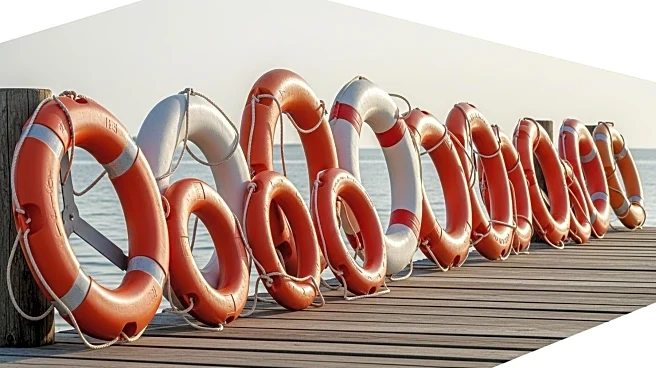What's Happening?
The Icelandic Transport Authority has declared 121 ships unfit to sail after safety checks revealed inadequate maintenance of their lifeboats. The lifeboats, serviced by Skipavík ehf, were found to be poorly maintained, leading to the revocation of the vessels' seaworthiness certificates. The service provider has voluntarily surrendered its operating license following the discovery. The Icelandic Transport Authority invalidated all inspections conducted by Skipavík since mid-2024, citing the need to ensure seafarer safety. The Icelandic Coast Guard reported that 18 of the affected vessels were at sea within the past week, and ship operators have been informed of the issue.
Why It's Important?
This development highlights significant safety concerns within Iceland's maritime industry, potentially affecting the operations of numerous vessels. The revocation of seaworthiness certificates could disrupt shipping activities, impacting trade and transportation. The incident underscores the importance of rigorous safety standards and inspections in the maritime sector to prevent accidents and ensure the safety of seafarers. The voluntary surrender of the service provider's license may lead to increased scrutiny and regulatory changes in the industry, aiming to prevent similar occurrences in the future.
What's Next?
The Icelandic Transport Authority plans to offer free re-inspections of the affected vessels before the end of 2025 to ensure compliance with safety standards. Ship operators will need to undergo these inspections to regain their seaworthiness certificates. The maritime industry may face increased regulatory oversight and potential changes in safety protocols to prevent future lapses. Stakeholders, including ship operators and service providers, will likely need to adapt to new safety requirements and inspection processes.
Beyond the Headlines
The incident raises questions about the accountability and oversight of service providers in the maritime industry. It may prompt discussions on the ethical responsibilities of companies involved in safety inspections and maintenance. The situation could lead to long-term shifts in how maritime safety is managed, with potential implications for international shipping standards and practices.










